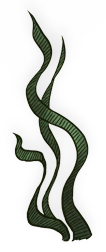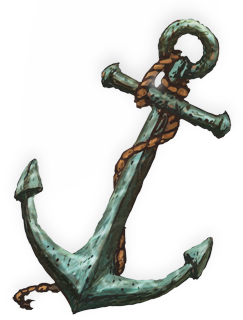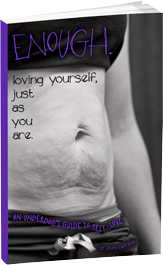Not too long ago, a Facebook post by James Fell ran through my newsfeed. (If you don’t follow him, you should. He’s pretty great.)
Here’s what he had to say.
The comments were, as you could probably guess, reactive.
Some were even explosive.
“HOW DARE YOU SAY I’M NOT ADDICTED, I AM TOTALLY ADDICTED, I CAN’T HELP MYSELF WITH SUGAR AND WHEN I TRY TO QUIT I CAN’T QUIT.”
The conversation that ensued was informative.
(And I’ll be honest, a little entertaining… Facebook fights are always.)
Doctors and nurses that specialize in drug addiction recovery compared sugar withdrawal to coming clean from heroin, saying “they are not even close to the same thing.”
Self-proclaimed sugar addicts revolted, saying “YES THEY ARE, because I can’t quit either.”
I replied to one of these comments in particular.
Me: “You’re right, sugar is not chemically addictive, but what about the behavioral aspect of it? Regardless of the substance, behavioral addiction recovery is the same.”
The woman I commented to (a nurse in a recovery clinic): “I have never heard the phrase “behavioral addiction,” I don’t even know what that is. Any behavior that repeats without thought is habit, not addiction.”
Me: “…um… Nooooo, not quite.”
**crickets**
How in the hell do recovery experts not know about behavioral addiction?
As it turns out, most people don’t know.
Or rather, maybe they know in theory or principle but not in practice, in the same way a person knows weeds and flowers by sight well before they know them by name. Maybe (probably) they’d know a behavioral addiction when they saw it, but wouldn’t know how to identify it by name.
That’s a problem.
How can you ever expect to change something, when you have no idea what it is?
In my work, helping those to recover from disordered eating and body dysmorphic disorder, I have become somewhat of an expert on the idea of addiction.
[“Hi, my name is Erin, and I am an addict.” I say that often, because it’s true.]
Even more importantly, I have become somewhat of an expert on behavioral addiction. The kind of addiction that revolves around no specific substance, but is addiction nonetheless.
In my mind, people are either addicts or they’re not. A person is either addictive and compulsive, meaning they fixate and obsess and have to do the thing, or they’re not-addicts, more impulsive, acting more spontaneously and less bound by obsessive thought.
Not-addicts are the kind of people who can pick up and drop otherwise addictive behaviors (smoking, drinking, sex) without second thought, regret, or backward glance. My sister is this way. She smoked cigarettes for a while, then decided “that’s gross, I don’t want that,” so she stopped. She eats what sounds good, stops eating when she’s full, eats one cookie but not twelve, drinks one drink but not fifteen (except on “the night of bad choices,” you should ask her about it sometime).
Addicts, people like me, have a very, very hard time picking things up without forethought, and an even harder time stopping behaviors we feel compelled to keep. It doesn’t matter whether or not the thing I feel compelled to is good for me or bad, if the thing provides an outlet for addictive abuse, it stays.
Or rather, I feel it HAS TO STAY, because if I let it go a part of me feels like it’s dying.
Addicted me, when I try to quit: “..uuuuuuuuuuuuuuuuuuuuuuuuuuuuuuuuugh…”
Without a doubt in my mind, I know for sure I am an addict. If I weren’t allergic to alcohol, I’d have been a drunk a long time ago. I know that if I were to start taking opiates or heroin, I would never, ever want to stop. It would take intervention, rehab, or near-death overdose to motivate me to come clean. Only pain of that magnitude would counterbalance the mind-erasing, empty euphoria that the drugs provided.
I don’t drink because I can’t. I don’t start drugs because I have no idea how to get them, and because I am scared-don’t-even-start.
What I can do, and what I have done, is find nearly any and all other substances in my life possible to abuse, and have created compulsive behaviors for those.
Food.
Sex.
Sleep.
Exercise.
Theft. (I am a mostly recovered pen stealer.)
Spending.
Saving.
Coffee.
Hoarding.
None of those things are heroin or cocaine or oxy, but they are substances that can be abused, overindulgence in them can ruin your life, and, at one point or another, I have been hooked on them all.
That post by James Fell and all the comments after have stirred up quite the buzz in my brain. Not because I think it’s right or wrong, but because it’s both.
It’s right AND wrong.
I KNOW that recovering from compulsive overeating is not the same as recovering from heroin. I know that when I STOP EATING THE CHIPS I am not going to have shakes, pukes, shits, or seizures (even though it feels that way).
I know, with real, logical, cold fact, that when someone cuts sugar out of their life it is not the same as quitting an oxy addiction.
But only kind of.
When we give up sugar, it is not like oxy withdrawal. We are not flooded with the pain of one billion neurotransmitters receiving input for the first time in months or years. We are not overwhelmed by neural stimulus. Simple sight and sound and touch do not feel the same as being stuck inside a boulder-filled-cement-truck-size rock polisher, and we do not lay in bed, convulsing and shaking and throwing up, wishing we would just die so the pain would stop.
What we ARE, though, is sad. Lost. Broken. We are haunted by the memories of how great the thing felt. We remember the joy it brought us, how it provided us an escape, and that no matter how shitty our day was and how much we detested the reality we’d created for ourselves, once we got that hit we were free.
Addiction is addiction, no matter the kind.
No matter the substance, no matter the withdrawal.
Addiction is addiction. Period.
BUT.
What we need to understand, both for our own recovery and for those we love who struggle with such things, is that addiction is layered.
Addiction is like a big, pungent, poop flavored jawbreaker, a lifebreaker, made solidly out of poison and sadness. We love it with the passion of one thousand burning suns and hate it with our dying soul.
We love it too much, and once we’ve had a bite we want more and more.
It’s not good for us, no matter how good it feels.
If it is addiction, it will always, always end up making us sick.
Every time.
To get rid of it, we have to peel back the layers, and ALL the layers. Not just one. No skipsies, no going around.
The only way through it is through, and usually from the inside out.
I like to see addiction like that, a layered ball of chaotic poison. I like to see it that way, because it makes so much sense.
Chemical addiction is at the root of all serious addiction. When the very meat and bone machine you live in is dependent upon a substance, you’re in a whole different league for recovery. You will be required to wean your body off of its need. It hurts, and for a long time you wish you were dead.
Just keep going… one day you will wake up and wish you were dead just a little less. I promise.
Psychological addiction comes next. We THINK we need it, so we do. The power of the human mind is enormous, well beyond our current comprehension. If a person thinks they need a specific substance or behavior to function, they do. That is their reality.
Psychological addiction is one of mind, not of body. It is a dependence upon the desired substance in order to cope with our own existence, not necessarily on the substance itself.
Standing alone as a single layer, behavioral addiction is also called “habit.”
Many people who defeat their chemical and psychological dependence on cigarettes are triggered into smoking again, “because habit.” At a bar they get a drink and immediately want a cigarette because it’s what they’re triggered to do.
As much as we like to think otherwise, human beings are creatures of habit. We can, through intentional (or thoughtless) choice, create a habit we become dependent upon in order to function in the way we are most comfortable.
This isn’t always a bad thing. I can’t sit on my bed to lay down at night without reaching for my pill, and I planned it that way. As long as I sleep (which I regretfully have to do), I will take my meds.
The trouble comes when we don’t plan on creating a habit, and the habit itself starts to take over our life. When we can’t go without the action, it becomes addiction.
Without the support of chemical or psychological addiction, behavioral addiction is a hollow ball, crusted over and reinforced by emotional need, but still it is there. Quitting a behavioral addiction is not like quitting an absentminded hair twirl when you read, it is a much deeper and more significant change.
It hurts, a little bit. And it is hard. It hurts us less physically, but definitely psychologically.
…and it hurts our feelings.
Which brings us to the final and most surface layer of addiction, the emotional one.
Emotional addiction, I have found, is the most difficult layer of addiction to escape.
Right now today, I can say that the ugly, black ball of anorexic addiction is almost completely hollow. I do not psychologically need to behave in that way. I am not (have never been) chemically addicted, and the behavioral addiction is dealt with.
I’m still addicted.
I am EMOTIONALLY addicted.
I am emotionally addicted to anorexia, still and might always be.
It’s shitty, but it is my truth.
I’m not supposed to say this in civil company, but I like my chaotic, self-destructive, scratching-the-emotional-itch eating disorders. I LIKE binging and starving and overeating. I like the ache and the forgetfulness after a starve, the few moments of elation after I’ve given in and indulged without restraint.
I liked being thin. I liked feeling Ana’s cold, hard fist of hunger in my middle, the pressure that told me I was doing it. That I was enough.
For that day in that moment, dizzy from a week without food, I was enough because I was less.
I’m not supposed to say that I liked my addiction, but I did. I DO. I will always.
To overcome the grips of addiction, I first had to understand that there was more to it than “just don’t do it.”
Them: “You’re not overeating right now, just keep doing that.”
Me: “First of all, fuck you. Secondly, it’s not that simple.”
It really isn’t that simple.
I can’t even tell you how many times I’ve thought to myself, “YOU’RE A SMART GIRL ERIN, WHY DO YOU CONTINUE TO DO THIS.” Why do you choke yourself on this behavior that you hate?
I continued, because the addiction was still there.
The layers were still there, one or all.
On my road to recovery, I have identified four truths to overcome addiction. By accepting these four truths, getting out from the inside of that stinky, poop filled lifebreaker of addiction has been easier.
NOT EASY, but easiER.
Four Truths of Addiction:
1. The road away from chemical addiction involves a lot of pain. Period. A chemical addiction is one that causes physical shut down when you try to stop the thing. If you have one of these, you need help. It is going to hurt, but you can do it if you decide to get it done.
You can do anything.
2. You determine your own reality, and that reality is created by the words you speak to yourself. If you tell yourself “I have to have the thing,” you’re right. If you tell yourself “I don’t really need this, but I want it bad,” you’re right.
To change your psychological addiction,
- tell yourself a different story, and
- find another way to get what you need.
Your mind is only dependent on what you tell it to be. Decide that things will change, and they will.
3. The distance between behavioral addiction and habit is only as wide as emotional relevance. The difference is huge or insignificant, depending on how strong the emotional need the behavior fills.
If I do the same thing every day but don’t give two shits that I skipped last Tuesday, it’s a habit.
If I do the same thing every day and feel like the universe will implode because I MIGHT be 2 hours late, it’s a behavioral addiction.
Assign a different emotional value to the behavior, and it becomes less of an addiction and more of a habit. Ask yourself “what is the worst thing that could happen if I don’t do it,” play that scenario out in your head, and alter your perspective accordingly.
Perspective changes everything.
4. Emotional needs fuel every. single. thing we do. Identify the emotional need that your addiction fills, then loosen the addiction’s grip by filling that same need in a different way.
Instead of using drugs or sex or food or exercise to cope and for detachment, start meditating. If you need alcohol to avoid being shy, wear Wonder Woman underpants instead.
Or, even better, figure out what part of your life you’re trying to escape from, and fix it.
(that’s where Depth comes in, and a great support system.)
I don’t need an easy life. I’m pretty sure I’ll never, ever have one. I will have to sweat and cry and bleed for what I want, because that is my lot in life.
I also know that whatever it is I gain, it will be because I EARNED IT.
You can earn a life free from addiction. It does not have to be handed to you. Your mind can set you free, so go out and GITSUM.
============================
Opt in for my newsletter here. Visit me on Facebook here.
Find yourself. Embrace your truth. Change your world.













Erin – I have nephews that have struggled with drug addiction. It’s a long, hard, dangerous and painful road towards recovery. Thank you for exposing the layers of addition. It’s important to understand there’s no immediate solution, and recovery is a never ending process.
Great summary of the roots of addiction. All addiction is based in neural pathways in the brain including behavioural and emotional addictions. For recovery “experts” to deny this is ludicrous. Great truths about this area that covers many layers of addiction.
An excellent summary of the components of addiction. On some level, no matter what we are compulsively drawn to, be it sugar, shoes, clothing, or comic books, one of these aspects of addicting behavior probably applies to all of us.
Erin’s four truths give us tools to be free.
Great post Erin. I have struggled with many of the same things over the years (and still do). Nice to know I’m not alone and there is a way of creating better habits
Addiction is massively important and afflicts most, if not all, of us at one time or another.
It’s also a topic people don’t want to talk about. You are exceptionally brave to talk so openly about yours.
The words we tell ourselves become our Truth, you are absolutely correct about that.
I work with a mental trick: I don’t say “I am addicted” but instead “I am a person who has an addiction to”. It means the same fucking thing. But it resonates differently with in the brain, being the thing or having the thing. It helps.
Great post Erin, I love the part about overcoming addiction requiring an understanding that it’s not as simple as “just don’t do it.” This personal development article is perfect for people who are trying to lost weight or stop binge eating. Well done.
Thanks Erin, I needed this today. I have an addictive personality and my current addiction is Food. I have started and stopped (my journey to curb my addiction, and lose weight)many a times and had lots of support yet still unable to quit eating….. I will get there, and will overcome my addiction!